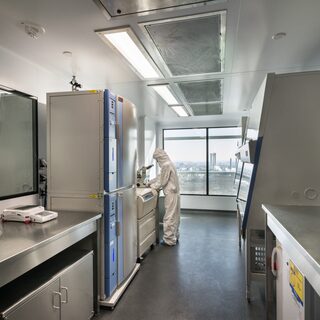Zymeworks Opens Vancouver Biopharmaceutical Lab
Zymeworks opened a 10,000-sf biopharmaceutical laboratory in January of 2017 in Vancouver, British Columbia. The facility will provide a centralized location for the company’s discovery research operations, including antibody generation, medicinal chemistry, bioconjugation, and the development of multifunctional proteins. Zymeworks is a producer of therapeutic agents for clinical-stage research on the treatment of cancer.






